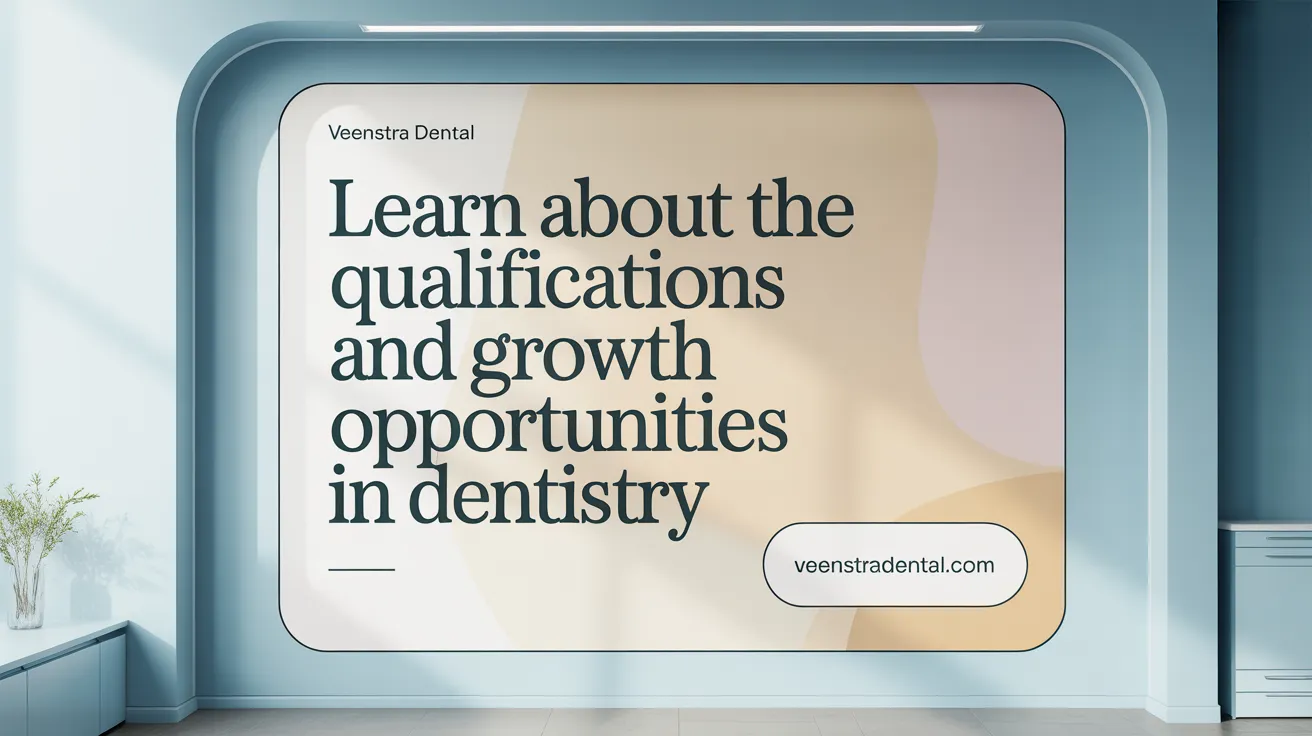A Team Approach to Exceptional Oral Health
In modern dental care, a team-based approach ensures every patient receives comprehensive and personalized treatment. This article introduces you to the expert dental team committed to your oral health, detailing their roles, expertise, qualifications, and the standards they uphold to deliver excellence in dental care.
The Vital Role of a Collaborative Dental Team

Why is a dental team important for delivering quality oral healthcare?
A dental team is fundamental for providing high-quality oral healthcare because it combines a variety of skills and expertise to support comprehensive patient management. This multidisciplinary approach ensures that patients receive not only treatment for dental issues but also preventive care and education tailored to their individual needs.
In a typical dental practice, roles span from general dentists to hygienists, dental therapists, assistants, laboratory technicians, and community health coordinators. Each professional contributes specific skills—dental hygienists perform cleanings and screenings, dental therapists handle routine procedures, and community health workers help underserved populations access care.
Effective teamwork depends on respectful communication, mutual understanding, and shared standards. When all members coordinate seamlessly, the practice can diagnose issues accurately, craft effective treatment plans, and deliver interventions efficiently. This integrated approach allows the full scope of each professional’s role to be utilized, leading to better health outcomes.
The collective effort also fosters a holistic view of health, recognizing the link between oral health and systemic diseases like heart disease and diabetes. Therefore, a well-organized dental team not only enhances patient experience but also promotes overall wellness, demonstrating that collaboration is essential for delivering superior oral healthcare.
Understanding the Expertise Within the Dental Team
 The dental team is a diverse and skilled group of professionals, each bringing specialized knowledge and responsibilities that together ensure comprehensive oral health care. Dentists are at the helm, diagnosing oral health issues, creating treatment plans, and overseeing the work of other team members such as hygienists, assistants, and technicians. They also perform complex procedures like restorations, extractions, and surgeries.
The dental team is a diverse and skilled group of professionals, each bringing specialized knowledge and responsibilities that together ensure comprehensive oral health care. Dentists are at the helm, diagnosing oral health issues, creating treatment plans, and overseeing the work of other team members such as hygienists, assistants, and technicians. They also perform complex procedures like restorations, extractions, and surgeries.
Dental hygienists play a vital role in preventive care. They conduct teeth cleanings, provide patient education on oral hygiene practices, and screen for systemic health conditions like diabetes and hypertension, which can manifest signs in the mouth.
Dental assistants support the clinical team by preparing patients, handling sterilization, assisting during procedures, and managing laboratory tasks such as taking impressions or x-rays. They are trained through formal programs and their assistance is critical to smooth and efficient clinical workflows.
Additional professionals include dental laboratory technicians, who craft dentures, crowns, and braces based on dentists' specifications, and community dental health coordinators, who work to improve access to care for underserved populations. Office managers ensure the practice runs smoothly by managing appointments, billing, and administrative tasks.
Each member of the dental team contributes their unique skills towards delivering high-quality, accessible, and patient-centered care. Their collective expertise fosters a multidisciplinary approach that addresses both immediate dental needs and overall health.
Education, Training, and Professional Development in Dentistry

What qualifications and training do dental professionals undergo?
Dental professionals must complete extensive education and training to ensure they can provide safe and effective care. Dentists typically hold a bachelor's degree followed by admission to an accredited dental school, where they earn either a Doctor of Dental Surgery (DDS) or Doctor of Dental Medicine (DMD) degree. After graduation, they must pass comprehensive written and clinical licensing exams to practice legally.
Dental hygienists usually complete a 2-4 year associate degree program focused on preventive oral care, including procedures like cleaning teeth and educating patients on good oral hygiene practices. Certification and licensure vary by state but are generally required. For details on the professional roles of a dental hygienist and their responsibilities, see related resources.
Dental assistants can enter the workforce through formal training programs, on-the-job training, or community college courses, and many obtain certification from organizations like DANB. Unlicensed dental assistants are now required in some areas to complete infection control courses before practicing. For more on dental assistant duties and training, please refer to career resources.
Ongoing education is a requirement for all dental professionals to stay current with advancements. Courses cover areas such as infection control, the Practice Act, new technology, and treatment techniques. Licensing authorities, such as the Dental Board of California, regulate these requirements, ensuring practitioners uphold high standards to protect public health and safety. See Dental Care Continuing Education Courses for details on continued professional development.
What career pathways and professional development opportunities exist within the dental field?
The dental profession offers diverse career paths suited to various interests and skills. The primary roles include general dentists, specialty dentists (such as orthodontists, periodontists, and oral surgeons), dental hygienists, dental assistants, dental laboratory technicians, office managers, and community dental health coordinators. Overview of roles within the dental team provides insights into this variety of positions.
Becoming a dentist requires completing undergraduate studies plus four years of dental school, with opportunities to pursue further specialization through advanced residencies and certification programs. Specialties like oral surgery or orthodontics involve additional years of training. Explore steps to becoming a dentist and career pathways for more information.
Dental hygienists usually pursue a 2-year associate degree and focus on preventive care, helping patients maintain oral health. Aspiring dental assistants and laboratory technicians can often enter the field through accredited programs or on-the-job training, with options for certification to enhance career prospects. For detailed role descriptions and duties please see dental team members overview.
Professional development also includes continuing education courses, certifications in specialties, leadership training, and participation in workshops or conferences. These opportunities allow dental professionals to update their skills, learn new procedures, and advance into supervisory or research roles, enhancing their contributions to community health and practice growth. The SmileCon Conference is one example of a professional event supporting growth and networking within the dental team.
More about careers in dental professions
For those interested, exploring education and career pathways in dental professions reveals a structured progression with opportunities for specialization, leadership, and academic advancement. Whether providing direct patient care or supporting the clinical and administrative processes behind the scenes, every role plays a vital part in delivering high-quality oral health services. Explore resources on careers in dentistry and detailed descriptions of roles and functions of the oral health team to discover how each position supports community oral health and successful dental practices.
Commitment to Excellence and Ethical Standards in Patient Care

How do dental practices demonstrate commitment to patient care and dental health?
Dental practices show their dedication to patient well-being by fostering trust through open, honest communication and personalized care. They prioritize safety by adhering to high standards of sterilization, hygiene, and transparent management of any adverse events. Providing thorough education about oral health, treatments, and preventive measures encourages patient engagement and satisfaction. Ethical principles such as confidentiality, honesty, and cultural sensitivity guide how staff interact with patients. Ongoing staff training, community outreach, and a welcoming environment further reinforce their commitment. By emphasizing follow-up care and comfort, dental teams demonstrate genuine concern for each patient’s overall health and experience, building confidence and promoting lifelong oral health (Today's Dental commitment to quality care).
What standards and credentials are important for a dental practice to maintain?
Maintaining proper credentials and standards is vital for ensuring quality care. A valid state dental license, obtained through rigorous education, examinations, and ethical standards, is fundamental. Accreditation by recognized professional organizations signifies adherence to best practices. Compliance with infection control measures, radiography safety, and patient confidentiality is also essential. Continuous professional development through staff training ensures that the team stays current with advances and guidelines (Dental Care Continuing Education Courses). Credentials such as specialty certifications and compliance with laws governing telehealth and scope of practice further ensure comprehensive and lawful care (Roles of the oral health team). These standards collectively uphold the integrity and safety of the dental practice.
How do dental practices ensure excellence and ethics in dental care?
Achieving excellence involves following established clinical guidelines, industry standards, and the ethical principles of the ADA and other professional bodies (American Dental Association commitment). Prioritizing patient autonomy, informed consent, and confidentiality fosters trust. Maintaining ongoing education and applying evidence-based treatments minimize harm and optimize outcomes. Leadership and teamwork within the practice promote accountability and a culture of professionalism. Advocacy for equitable access and societal responsibility demonstrates a commitment to justice. Practices that promote a respectful, inclusive, and environmentally conscious environment reinforce high ethical standards. Continual quality improvement, staff competency, and transparency solidify their reputation for ethical excellence.
How can providing detailed information about dental staff and patients reinforce trust and credibility?
Sharing information about the qualifications, experience, and care philosophies of staff helps patients feel confident in their care providers (Meet our dentists at Pure Smile Dental Group, Dental Experts of Riverside, Expert Dental Team). Clear, simple communication, empathetic listening, and visual aids make complex information accessible, reducing anxiety and building rapport. Staff who demonstrate warmth, attentiveness, and follow-up care create a welcoming atmosphere where patients feel valued and understood (Dr. David Won friendly staff). Transparency about procedures, honest discussion about potential mistakes, and swift remedial actions nurture trust and demonstrate integrity. These practices foster a positive environment of openness and accountability, enhancing credibility and fostering long-term relationships. Through compassionate, transparent interactions, dental teams can strengthen trust and ensure patients feel secure and respected.
Meet Our Experts: Dental Professionals Dedicated to Your Care
Introducing key dental team members and their qualifications
Our dental practice features a team of highly qualified professionals dedicated to your oral health. Dr. Marivic H. Pimentel dental expertise, a graduate of the Philippines' CEU School of Dentistry and trained at UCLA, is an active member of the American and California Dental Association members. Dr. Marilyn Sy 32 years experience and is a Multilingual dentist Dr. Marilyn Sy, including Chinese and Tagalog. Dr. Moutaz Kotrob DDS and filmmaker, with a DDS from Damascus University and a background in fine arts, combines dentistry with creative pursuits. All team members are American and California Dental Association members.
How advanced technology enhances patient care
We utilize modern dental technology in dentistry such as digital X-rays and intraoral cameras to offer precise and minimally invasive treatments. These tools enable our team to diagnose issues early and develop customized dental treatment plans, ensuring high-quality gentle dental care with comfort and efficiency.
The practice’s philosophy and commitment to personalized treatment
Our philosophy centers on high-quality gentle dental care tailored to each patient’s needs. We stay updated with the latest advancements and prioritize creating a trusting dental environment. Personalized dental treatment plans and cutting-edge technology help us deliver the best results and foster lasting relationships with our patients.
Your Trusted Partners in Oral Health
Our expert dental team embodies the highest standards of professional excellence, education, and compassionate care. Through their combined skills and commitment, they ensure every patient receives accurate diagnosis, effective treatment, and support in maintaining lifelong oral health. The integration of advanced technology, ongoing professional development, and adherence to ethical principles underscores the practice’s dedication to patient well-being. By fostering transparency and personalized attention, the team builds trust and confidence, empowering you to achieve and maintain a healthy, radiant smile. Your oral health is their priority today, tomorrow, and beyond.
